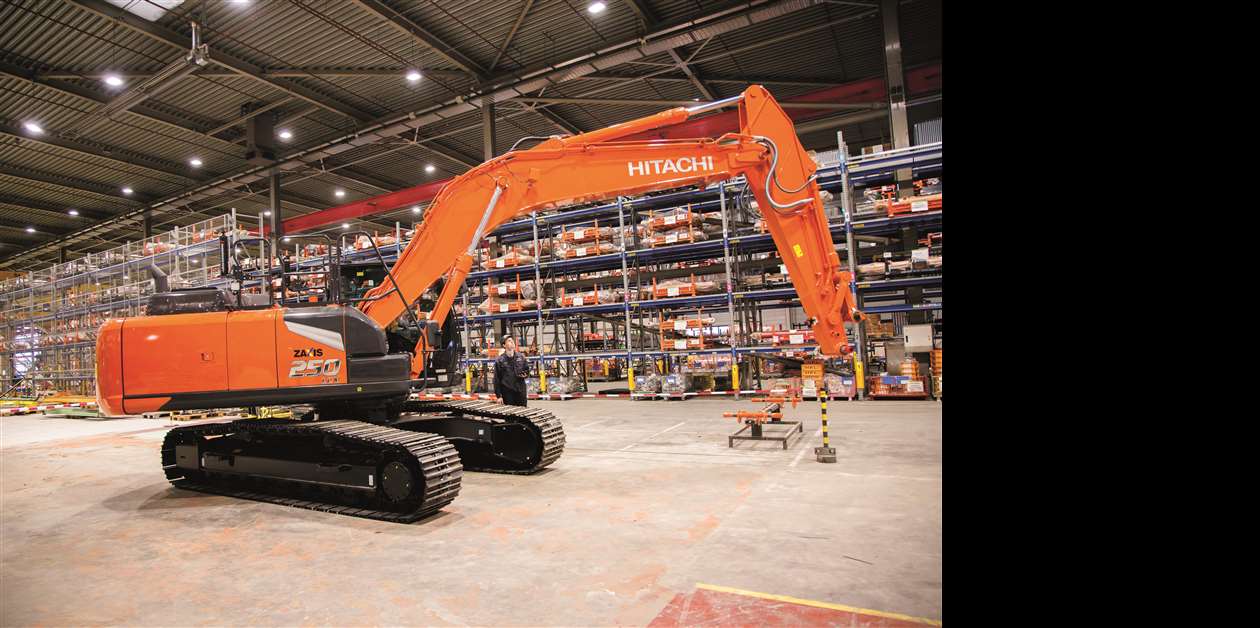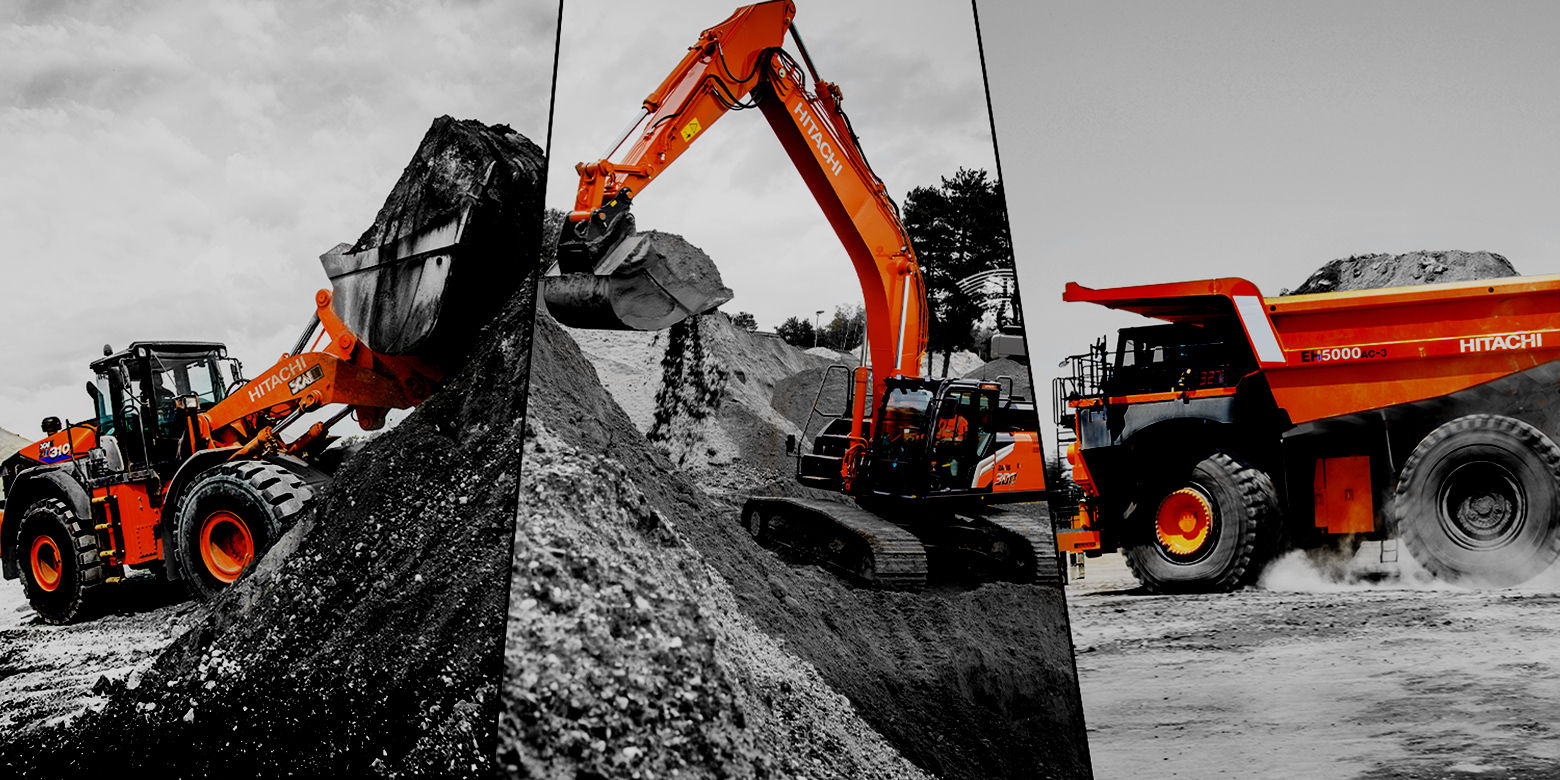Checking Out the Financial Benefits of Renting Construction Equipment Contrasted to Having It Long-Term
The decision in between owning and renting building devices is pivotal for economic management in the market. Renting out deals prompt expense financial savings and functional versatility, permitting firms to designate sources more successfully. Recognizing these nuances is necessary, particularly when thinking about just how they straighten with certain task requirements and monetary techniques.

Cost Comparison: Renting Vs. Possessing
When reviewing the monetary effects of possessing versus renting out construction tools, an extensive price comparison is essential for making educated decisions. The choice in between leasing and having can significantly impact a company's lower line, and recognizing the connected costs is crucial.
Renting out building tools commonly involves reduced in advance expenses, allowing organizations to assign resources to various other operational requirements. Rental prices can accumulate over time, possibly surpassing the cost of ownership if equipment is required for an extensive period.
Alternatively, having construction tools calls for a substantial preliminary investment, together with continuous costs such as financing, insurance, and depreciation. While possession can lead to long-term savings, it also binds funding and may not offer the same degree of flexibility as leasing. Furthermore, owning equipment necessitates a commitment to its use, which may not constantly straighten with project needs.
Inevitably, the decision to own or rent ought to be based upon a comprehensive evaluation of certain project requirements, monetary capacity, and long-term tactical goals.

Maintenance Costs and Responsibilities
The choice between leasing and having building and construction devices not only involves monetary considerations however likewise incorporates recurring upkeep costs and duties. Having devices requires a substantial commitment to its maintenance, that includes regular evaluations, fixings, and prospective upgrades. These responsibilities can swiftly accumulate, resulting in unanticipated costs that can strain a budget.
On the other hand, when leasing equipment, upkeep is normally the responsibility of the rental firm. This arrangement enables specialists to prevent the monetary burden associated with wear and tear, in addition to the logistical difficulties of scheduling repair services. Rental agreements commonly consist of provisions for maintenance, suggesting that contractors can focus on completing projects rather than fretting about equipment condition.
Furthermore, the varied variety of tools available for lease makes it possible for firms to select the current models with innovative technology, which can improve efficiency and efficiency - scissor lift rental in Tuscaloosa, AL. By selecting services, companies can avoid the long-lasting obligation of devices devaluation and the associated maintenance migraines. Eventually, evaluating maintenance expenditures and duties is critical for making an informed choice concerning whether to rent or own building equipment, significantly impacting total job costs and operational effectiveness

Depreciation Influence on Ownership

A significant aspect to consider in the choice to possess building tools is the impact of devaluation on total ownership costs. Devaluation represents the decline in value of the equipment gradually, affected by variables such as use, deterioration, and innovations in technology. As tools ages, its market price lessens, which can considerably impact the owner's monetary placement when it comes time to trade the devices or market.
For building and construction firms, this depreciation can convert to substantial losses if the tools is not utilized to its fullest potential or if it comes to be obsolete. Proprietors need to make up depreciation in their monetary forecasts, which can lead to higher total expenses compared to leasing. Furthermore, the tax implications of depreciation can be complicated; while it may give some tax obligation advantages, these are usually offset by the truth of lowered resale value.
Eventually, the concern of devaluation highlights the you can look here importance of understanding the lasting financial dedication associated with owning building and construction equipment. Firms have to thoroughly review just how commonly they will certainly make use of the devices and the potential financial impact of depreciation to make an informed decision regarding ownership versus renting out.
Monetary Versatility of Renting Out
Renting building and construction equipment supplies significant monetary versatility, enabling companies to allot sources a lot more effectively. This flexibility is specifically essential in an industry identified by changing job needs and differing workloads. By deciding to lease, organizations can prevent the significant resources expense required for purchasing devices, maintaining capital for other functional demands.
In addition, renting out tools allows firms to tailor their equipment options to certain job requirements without the long-term dedication connected with ownership. This means that organizations can easily scale their devices stock up or down based on awaited and current task requirements. As a result, this versatility minimizes the threat of over-investment in machinery that might end up being underutilized or obsolete in time.
Another economic benefit of leasing is the capacity for tax obligation advantages. Rental payments are frequently considered operating budget, permitting instant tax reductions, unlike devaluation on owned tools, which is topped several years. scissor lift rental in Tuscaloosa, AL. This instant expenditure acknowledgment can additionally enhance a firm's cash money setting
Long-Term Job Factors To Consider
When assessing the long-lasting demands of a construction company, the choice between renting out and having equipment comes to be extra complicated. Secret aspects to take into consideration include project period, regularity of usage, and the nature of upcoming tasks. For jobs with prolonged timelines, buying devices may appear helpful as a result of the possibility for lower overall expenses. Nevertheless, if the equipment will certainly not check my site be utilized consistently across jobs, having may result in underutilization and unneeded expense on upkeep, insurance policy, and storage space.
The construction sector is progressing swiftly, with brand-new devices offering enhanced efficiency and safety functions. This flexibility is particularly helpful for services that deal with varied projects requiring different kinds of devices.
Additionally, monetary security plays an important function. Possessing tools often requires significant capital financial investment and devaluation problems, while leasing permits even more foreseeable budgeting and cash flow. Eventually, the choice in between renting and owning must be lined up with the tactical goals of the construction service, considering both present and awaited task needs.
Final Thought
In verdict, leasing building tools supplies considerable monetary advantages over long-term possession. The lessened upfront costs, elimination of upkeep duties, and evasion of devaluation contribute to improved money circulation and financial adaptability. scissor lift rental in Tuscaloosa, AL. In addition, rental payments serve as instant tax deductions, further benefiting service providers. Eventually, the choice to rent out as opposed to very own aligns with the dynamic nature of construction projects, enabling versatility and access to the newest devices without the financial problems related to possession.
As tools ages, its market worth decreases, which can considerably impact the owner's economic setting when it comes time to market or trade the click now devices.
Renting out construction tools offers substantial economic versatility, allowing business to assign resources more efficiently.In addition, renting tools makes it possible for firms to customize their tools options to certain job demands without the long-lasting commitment associated with possession.In conclusion, renting construction devices supplies significant financial benefits over long-lasting possession. Ultimately, the choice to rent rather than very own aligns with the dynamic nature of construction tasks, permitting for versatility and accessibility to the newest devices without the monetary concerns associated with ownership.